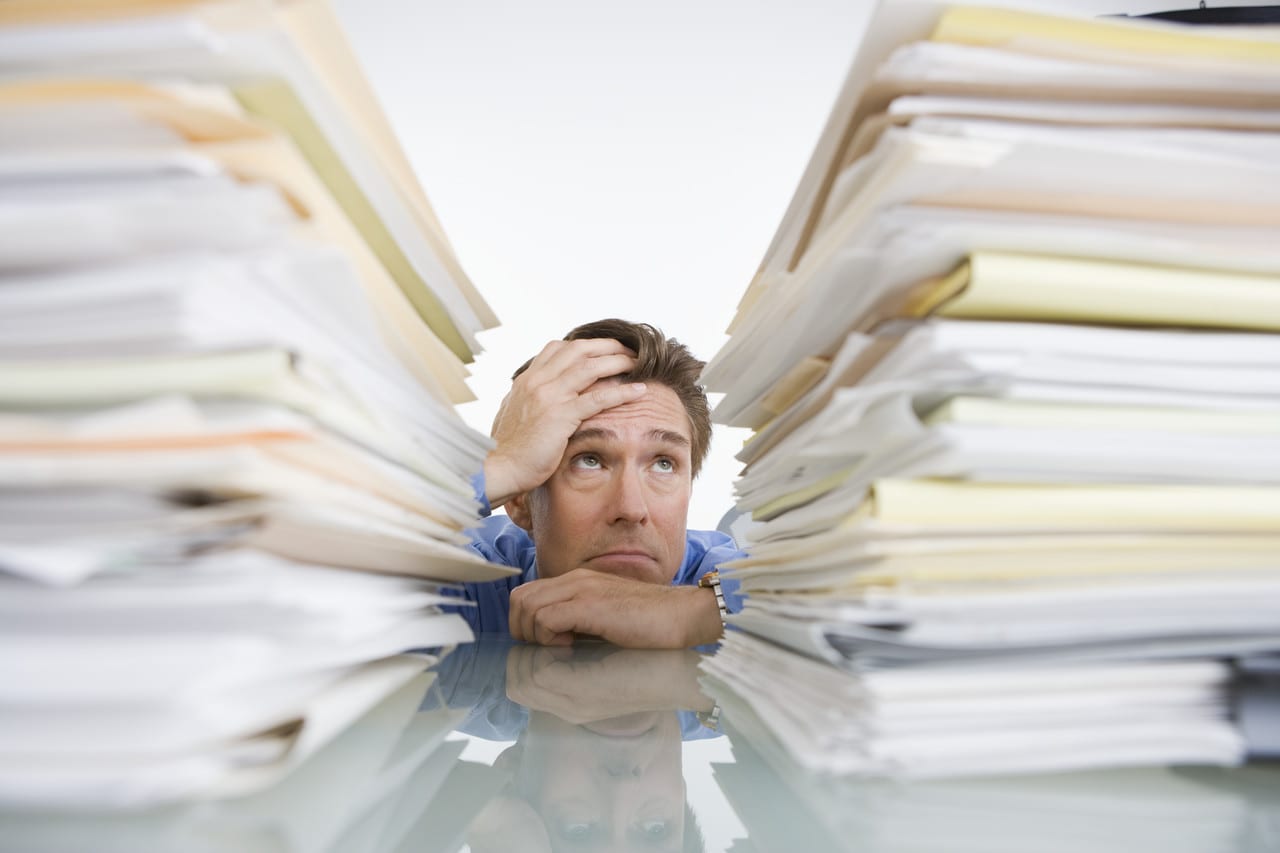Where do you have paper piles? Is it just the top of your desk? Or, like most people have the piles spread to your kitchen counter, your office credenza, the floor, and even inside of your cabinets? Don’t feel too bad, you are not alone. Paper continues to be one of the biggest challenges for many people, despite the technological advances of tablet computers, scanners, and inexpensive digital storage. Besides being distracting and unsightly, you can waste a lot of time digging through your piles to find what you need. Recognize that paper clutter is only a symptom and the answer lies in paper management.
Paper management
is about making decisions; paper clutter is about postponing those decisions. What do I do with my life insurance document? My mom sent me photos from our latest family reunion, where do I put them? I’m looking at re-landscaping the yard, where do the ideas and proposals go? I’m considering attending this conference, where can I put the flyer to remind myself to register? Do I really need to keep this bank statement from 5 years ago? If you don’t deal with the paper now, your future pile is just around the corner.
Reduce Incoming Paper
– If you really want to reduce your paper piles, the first step is to keep it from entering your space in the first place. Get off “junk mail” lists (www.dmaconsumers.org), stop catalogues from filling your mailbox (www.cataloguechoice.org), and opt-out of credit card offers (www.optoutprescreen.com). Less paper coming in means fewer decisions for you to make about what to do with it.
Print Less
– Want to generate less paper? Don’t print digital information. Use a tablet or computer app to read digital information instead of printing it. Process your emails within your inbox so you don’t print digital information as a reminder to do something.
Art of Wastebaketry™
– Learn to love your recycle/shred/trash bin. Getting rid of paper is hard because you think, “Someday I might need this.” But what good is saving something if you don’t know you have it or cannot find it when you need it? Asking yourself a few simple questions will make using your “circular file” a bit easier.
- Does it require action? – Just because you receive information, does not mean you need to keep it. In the work environment you may be the “lucky” recipient of someone else clearing their desk. That doesn’t mean you need to keep the paper. “FYI” information should be read and tossed. If a piece of paper you receive requires no other action, then file or toss it.
- Is it recent enough to be useful? – Information becomes quickly out of date in today’s fast paced world. An article on the latest tech toy, marketing materials on a company you met with a year ago, or data on the economy are examples of items that have a short shelf life and should not be saved.
- Is it difficult to get again? – An internet search, a search on your computer desktop, or a book gathering dust on your bookshelf may have the same information you’re keeping in paper form. Let the paper go!
- Are there tax or legal implications? – In this instance, knowing what you need to keep is very dependent on your own personal situation or industry (IRS audit, lawsuit over a real estate transaction, proof of asset ownership, etc.). Check with your CPA, attorney, or tax professional on what records you need to keep. If you’re in a company environment, have a well defined retention policy. Know your potential tax and legal situation so that you can plan what to keep, rather than keeping everything, “just in case”.
- Is there a specific use for it? – “Miscellaneous” is a file name that should never be used. It does not tell you what’s inside a file or cue you as to why you have the information. Know why you would want or need information in the future, then create a named file and file it away. If you’re unsure about your future need for the information, it’s unlikely that you’ll remember you have it or be able to find it when you do need it. Get rid of it!
- What’s the worst thing that could happen if I threw it away? – If you can live with the consequences, then out it goes.
Deal with paper as it comes in and eliminate what you know you can safely do without. Then you can organize the rest. You’ll save time focusing on creating systems for your important information, rather than wasting it on stuff that is not.
Want to clear the paper piles and set-up a system with the help of some expert advice? Contact More Time For You for an initial consultation and find out how we can make the process happen more quickly and easily.


